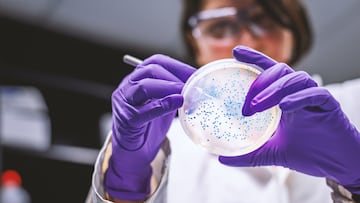Neither cholesterol nor tobacco: a new factor behind heart disease has been discovered
Researchers in South Korea have found that bacterial species can be linked to heart problems.

Cardiovascular diseases remain the number one cause of death worldwide, claiming nearly 20 million lives every year. While genetics, environmental factors, and disease severity play major roles, recent research suggests microbes may also be key players - particularly in the development of coronary artery disease (CAD).
Gut bacteria linked to heart disease
A team of South Korean researchers has discovered that several gut bacterial species are associated with coronary artery disease. Their findings highlight how the gut’s microbial balance could influence inflammation and metabolism tied to heart conditions. This opens new doors for prevention strategies and more personalized treatments for patients.
The study was published in mSystems by scientists from the Samsung Advanced Institute for Health Sciences and Technology (SAIHST) at Sungkyunkwan University, Seoul.
Han-Na Kim, Ph.D. in genomics at the SAIHST, led the research and explained: “We’ve gone beyond identifying which bacteria live there to uncovering what they actually do in the heart-gut connection.”
15 bacterial species identified
Researchers analyzed and compared fecal samples from 14 individuals with CAD and 28 healthy controls using metagenomic sequencing.
This comparison revealed 15 bacterial species linked to CAD, along with pathways connecting gut microbiota to disease progression.
Kim noted: “Our high-resolution metagenomic map shows a dramatic functional shift toward inflammation and metabolic imbalance, a loss of protective short-chain fatty acid producers, such as Faecalibacterium prausnitzii, and an overactivation of pathways, such as the urea cycle, linked to disease severity.”
When good bacteria turn bad
The study also found that some bacteria typically considered beneficial can become harmful. Microorganisms like Akkermansia muciniphila and F. prausnitzii, usually associated with gut health, may act differently depending on whether they originate from healthy or diseased intestines.
What’s next?
The next phase of this research aims to integrate microbial signals with genetic and metabolomic data to map, with greater precision, the pathways that lead to heart disease.
Related stories
Get your game on! Whether you’re into NFL touchdowns, NBA buzzer-beaters, world-class soccer goals, or MLB home runs, our app has it all.
Dive into live coverage, expert insights, breaking news, exclusive videos, and more – plus, stay updated on the latest in current affairs and entertainment. Download now for all-access coverage, right at your fingertips – anytime, anywhere.


Complete your personal details to comment